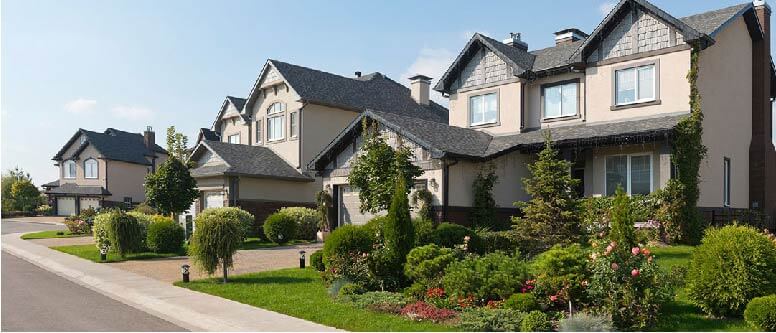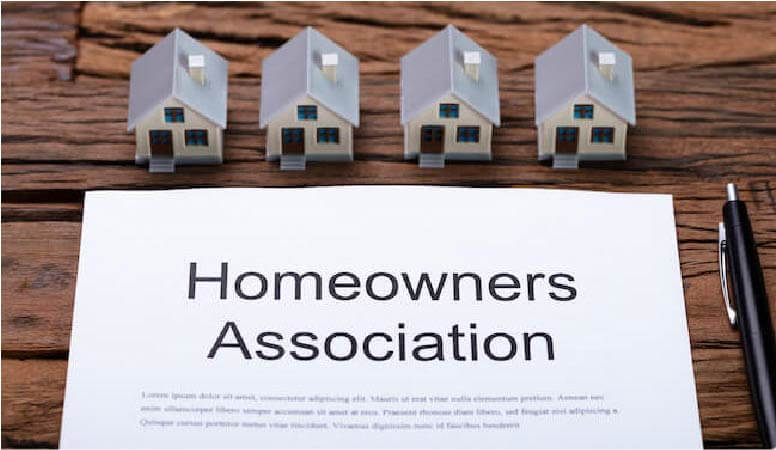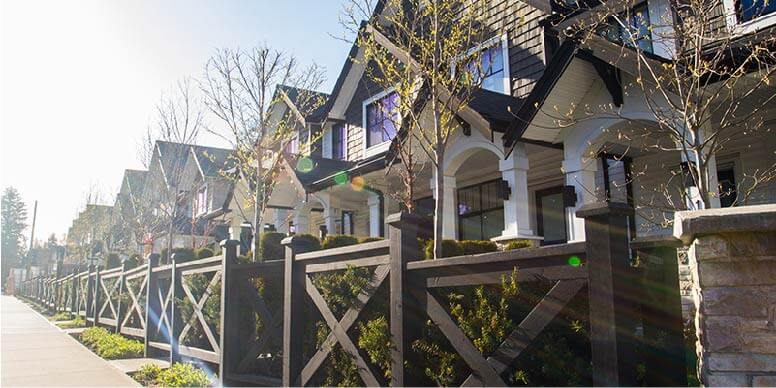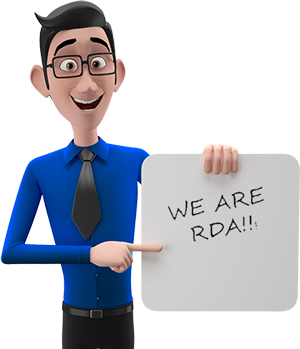How to Organize HOA Meetings: A Step-by-Step Guide
Organizing HOA meetings is a crucial aspect of maintaining a well-functioning homeowners association. These gatherings serve as the backbone for community decision-making, ensuring transparency and fostering open communication among residents. From setting a clear agenda to meeting quorum requirements, proper organization is key to productive and efficient HOA meetings.
This comprehensive guide will walk you through the essential steps to organize successful HOA meetings. We’ll cover everything from understanding different meeting types to developing a thorough agenda. Additionally, we’ll explore effective ways to notify homeowners, conduct productive discussions, make informed decisions, and engage the community. By following these steps, you’ll be well-equipped to run smooth and effective HOA meetings that benefit all members.
Understand HOA Meeting Types
Homeowners’ associations (HOAs) conduct various types of meetings to ensure effective governance and community management. Each meeting type serves a specific purpose and has its own set of rules and requirements. Understanding these different meeting types is crucial for both board members and homeowners to participate effectively in the association’s affairs.
Regular board meetings
Regular board meetings are the most common type of HOA gatherings. These meetings typically occur monthly or quarterly, depending on the community’s needs and governing documents. During these sessions, the board of directors discusses and conducts the association’s business, including financial matters, maintenance reports, and policy setting. Homeowners are usually allowed to attend and voice their opinions or concerns before the board votes on important matters. Notice requirements for regular board meetings vary, but generally range from 7 to 30 days prior to the meeting date.
Annual meetings
Annual meetings are a crucial component of HOA operations, required by law and governing documents. These meetings serve both legal and functional purposes, bringing together all community members once a year. During annual meetings, the board presents the yearly budget, discusses past events, and outlines upcoming projects. One of the most important aspects of annual meetings is the election of new board members. Homeowner attendance is essential to reach a quorum, which is necessary for conducting official business. Notice for annual meetings is typically provided at least 30 days in advance, and all residents are encouraged to attend.
Special meetings
Special meetings are called to address specific issues that arise between regular board meetings and annual meetings. These gatherings focus on particular concerns that require immediate attention or action. Special meetings are limited to discussing only the topics included in the meeting notice and cannot stray from the specified agenda. The association’s governing documents usually outline who can call a special meeting and the criteria for doing so. In some cases, individual homeowners may have the right to request a special meeting, subject to specific requirements outlined in the HOA’s bylaws.
Executive sessions
Executive sessions are closed meetings attended only by board members and, when necessary, invited parties such as the HOA manager or legal counsel. These sessions are held to discuss confidential or sensitive matters, such as ongoing litigation, personnel issues, or disciplinary actions against homeowners. While executive sessions are not open to the general membership, homeowners still have the right to know when these meetings occur. The board must provide notice of executive sessions, although the specific requirements may vary depending on state laws and the association’s governing documents. Minutes from executive sessions are typically not made available to the public due to the sensitive nature of the discussions.
Develop a Comprehensive Agenda
A well-structured agenda is the backbone of any successful HOA meeting. It sets the pace, keeps discussions on track, and ensures all critical matters are addressed. To organize HOA meetings effectively, boards should focus on creating a comprehensive agenda that prioritizes important topics, includes financial updates, and allows time for homeowner input.
Prioritize important topics
When crafting the agenda, it’s crucial to prioritize topics based on their importance and relevance to the community. This approach helps maintain focus and ensures that essential matters receive adequate attention. Start by reviewing the minutes from the previous meeting to address any unresolved issues or follow-up items. Then, list new business items that require discussion or action.
To maintain efficiency, assign specific time slots for each agenda item. This practice helps keep the meeting on schedule and prevents any single topic from dominating the discussion. For instance, allocate more time to complex issues or those requiring in-depth deliberation, while briefer updates can have shorter time slots.
Include financial updates
Financial reports are a critical component of any HOA meeting agenda. These updates provide transparency and keep homeowners informed about the association’s fiscal health. When organizing HOA meetings, make sure to allocate time for reviewing the association’s operating accounts, reserve accounts, and current year’s operating revenues and expenses.
During this portion of the meeting, the board should present the latest account statements, income and expense reports, and the monthly general ledger. For annual meetings, it’s particularly important to include a comprehensive financial review, including the presentation of the upcoming year’s budget and any financial projections for planned projects.
Allow time for homeowner input
Engaging the community is a vital aspect of organizing HOA meetings. To foster an open and inclusive environment, it’s essential to provide homeowners with an opportunity to voice their concerns and ask questions. Many HOAs include an open forum at the beginning of the meeting for this purpose.
When structuring the agenda, allocate a specific time slot for homeowner input. Generally, 3-5 minutes per resident is considered reasonable. This practice ensures that everyone has a chance to speak while keeping the meeting on track. It’s important to note that while the board should listen attentively to homeowner concerns, they are not required to provide immediate solutions. Complex issues can be deferred to the next meeting for further consideration.
To enhance community engagement, consider implementing a system that allows homeowners to submit questions or concerns in advance. This approach enables the board to address key issues efficiently and prepare thoughtful responses.
By developing a comprehensive agenda that prioritizes important topics, includes financial updates, and allows for homeowner input, HOA boards can organize meetings that are both productive and inclusive. This structured approach not only helps maintain transparency but also fosters a sense of community among residents, ultimately contributing to the smooth operation of the homeowners association.
Notify Homeowners Effectively
Effective communication is crucial when organizing HOA meetings. Proper notification ensures that all homeowners are aware of upcoming gatherings and have the opportunity to participate. This section explores the key aspects of notifying homeowners effectively, including legal requirements, providing clear meeting details, and utilizing various communication methods.
Follow legal requirements
HOA boards must adhere to state laws and the association’s governing documents when providing notice of meetings. Generally, written notice is required and must include the date, time, and location of the meeting, as well as the agenda. The notice period varies depending on the type of meeting and state regulations.
For open board meetings, notice must be given at least four days prior to the meeting, unless the governing documents specify a longer period. Executive session meetings require a minimum of two days’ notice. Annual meetings, which often involve elections, typically require at least 30 days’ notice.
It’s important to note that emergency meetings may not require advance notice, but boards should consult their governing documents for specific requirements. Keeping track of how and when notice is provided is essential to ensure compliance with legal obligations.
Provide clear meeting details
When notifying homeowners about upcoming meetings, it’s crucial to provide clear and comprehensive information. The notice should include:
• Date, time, and location of the meeting • Agenda items to be discussed or acted upon • Instructions for participating in virtual or teleconference meetings • Contact information for technical assistance (if applicable) • Reminder of members’ right to request individual delivery of meeting notices
For annual meetings, include additional information such as the names of nominees for board positions and any other important matters to be addressed. Providing clear details helps homeowners prepare for the meeting and fosters transparency within the community.
Use various communication methods
To reach all homeowners effectively, HOA boards should utilize multiple communication channels. Some common methods include:
• Posting notices in prominent common areas • Mailing notices to homeowners’ addresses on file • Sending emails to those who have consented to electronic delivery • Including meeting information in newsletters or billing statements • Using social media platforms or dedicated HOA websites
When using electronic delivery methods, ensure that homeowners have provided unrevoked consent. For those who prefer individual delivery, honor their requests and send notices via first-class mail.
By employing a combination of communication methods, HOA boards can increase the likelihood that all homeowners receive important meeting information. This approach promotes transparency, encourages participation, and helps maintain a well-informed community.
Remember that effective communication goes beyond simply distributing notices. Encourage homeowners to submit questions or concerns in advance, and consider implementing a system for gathering feedback. This proactive approach can lead to more productive discussions during meetings and foster a sense of community engagement.
Conduct Productive Discussions
To organize HOA meetings effectively, it’s crucial to establish an environment that fosters productive discussions. This involves setting ground rules, managing time efficiently, and addressing conflicts professionally. By implementing these strategies, board members can ensure that meetings are focused, respectful, and yield positive outcomes for the community.
Establish ground rules
Before diving into discussions, it’s essential to establish clear guidelines for the meeting. These rules help maintain order and ensure that all participants understand what is expected of them. Some key ground rules to consider include:
• Respecting others’ opinions and allowing everyone a chance to speak • Staying on topic and adhering to the agenda • Raising hands or using a designated method to indicate a desire to speak • Refraining from interrupting others or engaging in side conversations • Maintaining a professional and courteous tone throughout the meeting
By clearly communicating these expectations at the beginning of each meeting, board members can create a safe and respectful environment for open dialog. This approach encourages homeowners to share their thoughts and concerns while maintaining a structured format.
Manage time efficiently
Effective time management is crucial for conducting productive HOA meetings. To make the most of the allotted time, consider the following strategies:
• Assign a timekeeper to monitor discussions and ensure they stay within the designated time frames • Use a visible timer or clock to help participants stay aware of time constraints • Allocate specific time slots for each agenda item and stick to them • Encourage speakers to be concise and focused in their contributions • Consider implementing time limits for individual speakers, typically 2-3 minutes per person
By managing time efficiently, board members can address all necessary topics without allowing any single issue to dominate the meeting. This approach helps maintain engagement and prevents meetings from running excessively long.
Address conflicts professionally
Conflicts and disagreements are natural occurrences in HOA meetings, but it’s essential to handle them professionally to maintain a productive atmosphere. Here are some strategies for addressing conflicts:
• Encourage open communication while emphasizing respect for differing viewpoints • Focus on the issue at hand rather than personal attacks or blame • Use active listening techniques to ensure all parties feel heard and understood • Consider appointing a neutral mediator for particularly contentious issues • Document agreements and resolutions reached during the meeting to prevent future misunderstandings
When conflicts arise, it’s crucial for board members to remain calm and objective. By addressing disagreements professionally, the board can foster a sense of trust and transparency within the community.
By establishing ground rules, managing time efficiently, and addressing conflicts professionally, HOA boards can conduct productive discussions that benefit the entire community. These strategies help create an environment where homeowners feel heard and respected, leading to more effective decision-making and a stronger sense of community engagement.
Make Informed Decisions
Ensure quorum is met
Before proceeding with any official business, it’s crucial to establish a quorum at HOA meetings. A quorum is the minimum number of members required to be present for the association to conduct business legally. This requirement serves as a safeguard, ensuring that decisions are made with adequate representation from the community.
The specific quorum requirements are typically outlined in the association’s bylaws or CC&Rs. In most cases, a quorum is defined as a simple majority of the members. However, if the governing documents don’t specify an exact number or percentage, state laws often dictate that at least one-third of the voting power constitutes a quorum.
Failing to meet quorum can have significant consequences. Without it, no official business can be conducted, votes cannot be taken, and rules cannot be changed. This can lead to delays in decision-making and potentially cost the association time and money.
Follow proper voting procedures
Once quorum is established, it’s essential to adhere to proper voting procedures. These procedures ensure fairness and transparency in the decision-making process. The specific voting methods can vary depending on state laws and the association’s bylaws.
Common voting procedures include:
• Written ballots: Members manually fill in their choices on paper ballots. • Electronic ballots: Similar to written ballots but conducted online. • Secret ballots: Used for sensitive matters, where voter information is kept confidential. • Voting by proxy: Allows members to transfer their voting power to another person.
It’s important to note that some decisions may require different voting thresholds. For example, certain matters might need a simple majority, while others could require a supermajority or even unanimous consent.
Document all decisions
Proper documentation of decisions made during HOA meetings is crucial for maintaining transparency and accountability. This is typically done through meeting minutes, which serve as an official record of the proceedings.
When documenting decisions, include the following information:
• The motion or proposal being voted on • The name of the person who made the motion • The outcome of the vote (passed or failed) • Any significant discussion points or dissenting opinions
Meeting minutes should be clear, concise, and accurate. They serve not only as a reference for the community but also as a legal record that can be used in official and legal matters if needed.
By ensuring quorum is met, following proper voting procedures, and documenting all decisions, HOA boards can make informed decisions that benefit the entire community. This approach fosters trust, promotes transparency, and helps maintain a well-functioning homeowners association.
Engage the Community
Engaging the community is a crucial aspect of organizing HOA meetings effectively. By encouraging attendance, providing opportunities for feedback, and sharing meeting outcomes, HOA boards can foster a sense of connection and collaboration within the community.
Encourage attendance
To boost attendance at HOA meetings, boards should implement various strategies to make the gatherings more appealing and accessible to homeowners. One effective approach is to schedule meetings at convenient times, taking into account the diverse schedules of community members. Consider alternating between weekday evenings and weekend mornings to accommodate different preferences.
Another way to encourage attendance is by offering virtual meeting options. Using platforms like Zoom or Google Meet allows homeowners to participate from the comfort of their homes, eliminating barriers such as commuting or childcare concerns. This flexibility can significantly increase participation rates.
To further incentivize attendance, HOA boards can provide small rewards or perks. For example, offering refreshments or hosting a raffle for attendees can make meetings more enticing. Some associations have even experimented with providing gift cards or discounts on HOA fees for regular meeting participants.
Provide opportunities for feedback
Creating an environment where homeowners feel comfortable sharing their thoughts and concerns is essential for maintaining transparency and fostering community engagement. One effective method is to allocate dedicated time during each meeting for an open forum or public comment session. This allows residents to voice their opinions and ask questions directly to the board.
To make feedback collection more structured, consider implementing surveys or suggestion boxes. These tools enable homeowners to share their thoughts anonymously, which can be particularly helpful for those who may feel hesitant to speak up during meetings. Boards can use this feedback to identify common concerns and address them proactively.
Another innovative approach is to organize smaller focus groups or committees to discuss specific topics in depth. This allows for more targeted discussions and gives homeowners a chance to contribute their expertise or interests to particular areas of community management.
Share meeting outcomes
Effective communication of meeting outcomes is crucial for maintaining transparency and keeping the community informed. After each meeting, promptly distribute a summary of key decisions, actions to be taken, and highlights of discussions. This not only keeps everyone in the loop but also demonstrates that attending meetings leads to tangible results.
Consider using various communication channels to share meeting outcomes, such as email newsletters, community websites, and social media platforms. This multi-channel approach ensures that information reaches all homeowners, regardless of their preferred method of communication.
To further enhance transparency, make meeting minutes readily available to all community members. This can be done by posting them on the HOA website or sending them via email. Providing easy access to meeting records allows homeowners to stay informed even if they were unable to attend a particular meeting.
By implementing these strategies to engage the community, HOA boards can create a more inclusive and participatory environment. This approach not only improves meeting attendance but also fosters a stronger sense of community and shared responsibility among homeowners. As a result, organizing HOA meetings becomes a collaborative effort that benefits the entire association.
Conclusion
Organizing HOA meetings effectively has a significant impact on community engagement and decision-making. By following the steps outlined in this guide, HOA boards can create more productive and inclusive gatherings. From understanding different meeting types to developing comprehensive agendas and engaging the community, these strategies help foster transparency and collaboration.
Ultimately, well-organized HOA meetings lead to stronger communities and more efficient operations. By putting these practices into action, boards can improve communication, make informed decisions, and build trust among homeowners. This approach not only streamlines HOA management but also creates a more harmonious living environment for all residents.
Related Articles:
- Effective HOA Board Meetings: Strategies for Better Collaboration
“Strategies to enhance collaboration during HOA board meetings.” - HOA Board Members: Fostering Positive Relationships
“Tips on fostering positive relationships among board members.” - HOA Property Manager Responsibilities: A Financial Perspective
“A financial perspective on HOA property manager responsibilities.”








